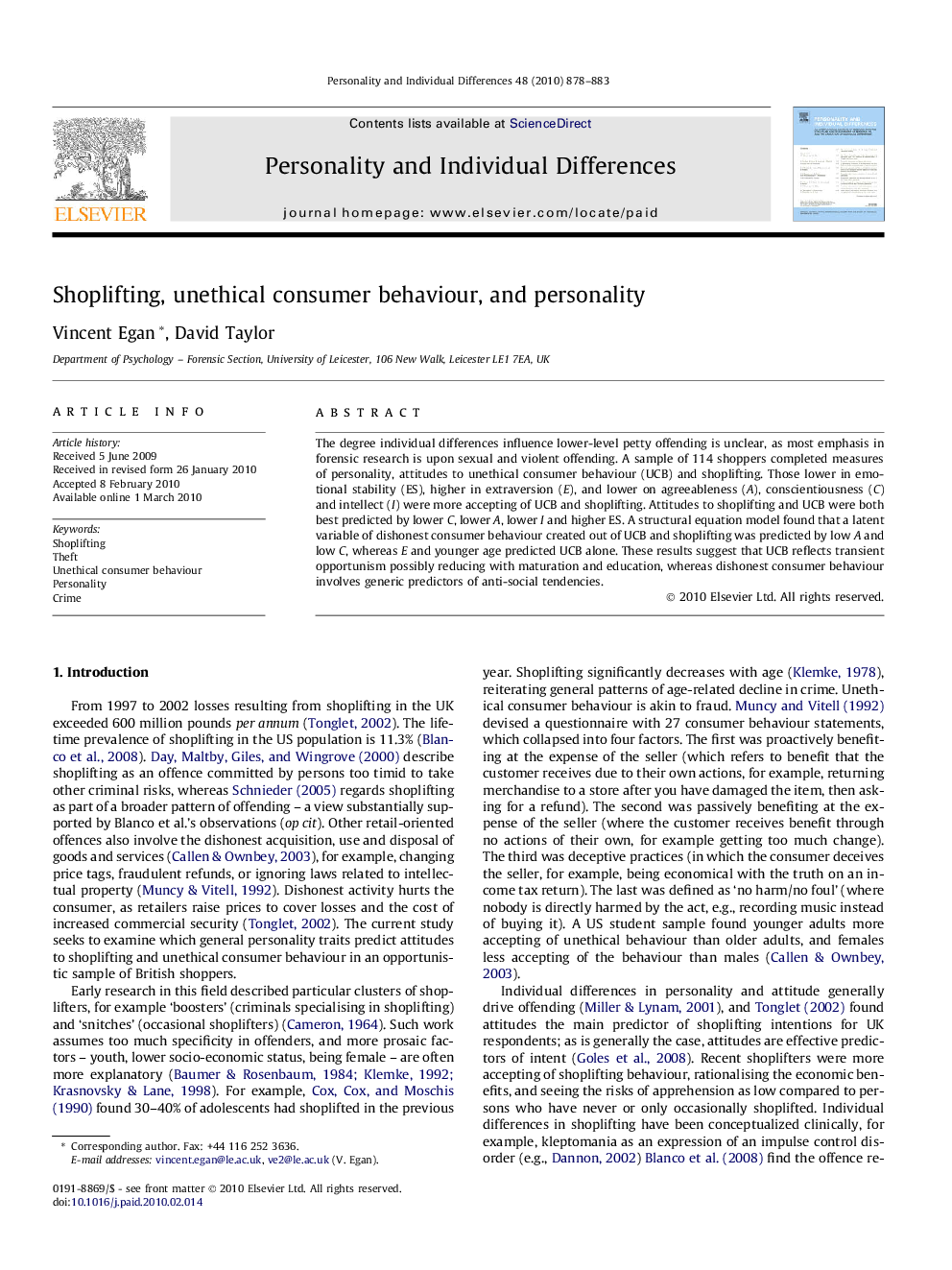| Article ID | Journal | Published Year | Pages | File Type |
|---|---|---|---|---|
| 891984 | Personality and Individual Differences | 2010 | 6 Pages |
The degree individual differences influence lower-level petty offending is unclear, as most emphasis in forensic research is upon sexual and violent offending. A sample of 114 shoppers completed measures of personality, attitudes to unethical consumer behaviour (UCB) and shoplifting. Those lower in emotional stability (ES), higher in extraversion (E), and lower on agreeableness (A), conscientiousness (C) and intellect (I) were more accepting of UCB and shoplifting. Attitudes to shoplifting and UCB were both best predicted by lower C, lower A, lower I and higher ES. A structural equation model found that a latent variable of dishonest consumer behaviour created out of UCB and shoplifting was predicted by low A and low C, whereas E and younger age predicted UCB alone. These results suggest that UCB reflects transient opportunism possibly reducing with maturation and education, whereas dishonest consumer behaviour involves generic predictors of anti-social tendencies.
